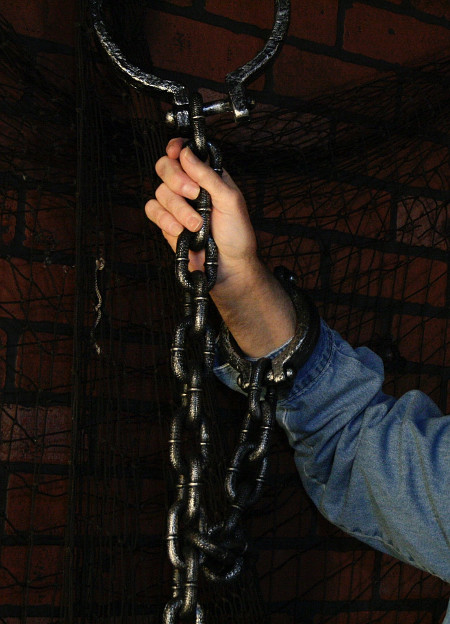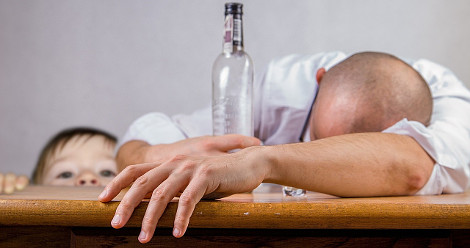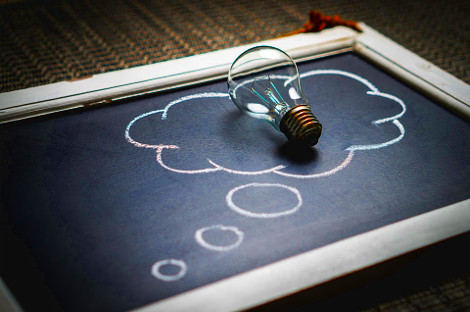Addictions
Addiction Counselling and Therapy
Take the next step to bring the change you need.
Hope Restored
Are you looking for hope of recovery and to be free of an addiction? We can help. With our training, experience and expertise we can provide you with up-to-date therapies that can aid in your healing and freedom. At New Hope Counselling Centre we offer a holistic approach to addiction treatment which encompasses the whole aspect of an individual.
We work with a person on every level to help them recover, heal and rehabilitate bringing freedom. The holistic approach we take involves treatment in the following ways:
- lifestyle balancing
- boundaries
- diet and nutrition
- movement (exercise)
- resolution of trauma
- elimination of cravings and temptations
- incorporating spiritual practices, such as meditation
- calming and stress release techniques
- homeopathic & naturopathic treatments
- alternative therapies
- FSAP (Feeling-State Addiction Protocol) treatments
- Family and individual therapy and counselling sessions

At New Hope Counselling Centre we are not just going to help you to cope but rather to resolve the root of your problem.
For full recovery it is essential that those who have come in for addiction treatment take personal responsibility and accountability for their own actions, health and well-being. Together with traditional and alternative therapies full recovery is promising providing hope, a light at the end of the tunnel.
We can help you be free from numerous addictions, including:
- Alcohol
- Drugs
- Shopping/Spending
- Pornography and Sex
- Gambling
- Food
- Internet
- Work
- Romance
At New Hope Counselling Centre, our clients are provided with a wide array of alternative and holistic therapeutic options.
Is Substance Addiction A Mental Illness?
Yes, because addictions change brain functions in radical ways which disrupts perceptions of realty, needs, desires, priorities, and family and social interactions. Addictions result in behaviours that are compulsive and where the thoughts are obsessive in nature. The change in brain function overrides the the person’s ability to exercise self-control, they lose healthy willpower which is much like other mental illnesses.
Substance addiction changes the terrain of the brain resulting in the shift of needs and desires to unhealthy levels confusing the true sense of reality.
The DSM, which is the go-to book for all mental health practitioners, distinguishes between two types of drug addiction: drug abuse and drug dependence. Drug abuse lacks the compulsive usage of drugs, it is the precursor to drug dependence which is drug addiction. Drug dependence is when there is compulsive use, tolerance, where they need a higher doses to achieve the same desired effect as upon first usage, or withdrawal when use is stopped, these are the signs of addiction.
Why and How Addictions Form?
 Addictions are formed after an emotional void or painful incidents occur creating a desire for a feeling of being loved. All addictions, simply put is the pursuit of feeling loved. To explain it in a more detailed fashion is to understand that we as humans are looking for some kind of positive feeling, which we will call a “Feeling-State”. This feeling state is formed when a desired feeling and behavior become fixated together. Here are some examples of that. A person who longs for a love from a parent but has only experienced it when they sat eating sweets or drinking alcohol. This instance or numerous reinforcing instances reinforces that behaviour when there is a connection of parental love in some manner. Another example would be when a person becomes fixated with gambling because it potentially makes them feel like a winner. Though the gambler may lose but the fixation, i.e. addiction, that exists between the gambling and the feeling of being a winner, even though they may lose will persist and continue, thus creating the addiction. An addiction is a constant cycle between desire, achieving a feeling that temporary gratifies the person, which then leads to some form of regret or guilt, but once they move beyond that the cycle begins all over again, thus addiction.
Addictions are formed after an emotional void or painful incidents occur creating a desire for a feeling of being loved. All addictions, simply put is the pursuit of feeling loved. To explain it in a more detailed fashion is to understand that we as humans are looking for some kind of positive feeling, which we will call a “Feeling-State”. This feeling state is formed when a desired feeling and behavior become fixated together. Here are some examples of that. A person who longs for a love from a parent but has only experienced it when they sat eating sweets or drinking alcohol. This instance or numerous reinforcing instances reinforces that behaviour when there is a connection of parental love in some manner. Another example would be when a person becomes fixated with gambling because it potentially makes them feel like a winner. Though the gambler may lose but the fixation, i.e. addiction, that exists between the gambling and the feeling of being a winner, even though they may lose will persist and continue, thus creating the addiction. An addiction is a constant cycle between desire, achieving a feeling that temporary gratifies the person, which then leads to some form of regret or guilt, but once they move beyond that the cycle begins all over again, thus addiction.
An addiction can be created from a single event. All it can take is a single event to form an addiction, like the event of winning a large sum of money while gambling, a social drink with some people that created an event of where there formed a sense of belonging, after being raped becoming sexually promiscuous in order to gain power and overcome the incident, when love was only expressed by gifts given which may form a shopping addiction, and the list of examples can be endless. But the pain of addiction comes after when some form of emotional, social, financial, or physical illness is experienced. All addictions are costly on some level.
An addiction is formed when a desired feeling is promised and/or experienced coupled when a particular action or behaviour occurs. Like gambling can become coupled with the feelings of winning, power, status, recognition, feeling admired or wanted.
When these feelings become linked with a behaviour they form an addiction in the brain. A feeling of being a winner or the feeling of being loved and accepted may become connected to such behaviours as smoking, drinking, sex, shopping, stealing, gambling, cheating, eating, etc.
Illustratively explaining the anatomy of addiction:
Desirable Feeling of Great Intensity + Positively Perceived Event(s) = Addiction
Addictions have a cycled and can be triggered by an event perceived, thought about, or experienced. An example could be a smell, a sound or the sight of something. Cookies baking, sound of music that reminds you of an event and feelings, or the sight of something like a sale flyer, or a poker table could be a trigger the addictive response leading to the behaviour. Notice the formula below:
Fixation (obsession) + Event (trigger) = Addiction Enacted
This theory was formulated by Dr. Robert Miller the founder of FSAP.
So according to the Feeling-State Theory of Addictions, that is how addictions are created.
Comorbidity: Combined Mental Illnesses
In psychology, comorbidity refers to more than one mental disorder or disease that exists alongside a primary diagnosis, which was the reason the patient got referred and/or treated.
Most always an addiction is coupled with another disorder, such as PTSD, ADD, General Anxiety Disorder, etc. To resolve the addiction you must also resolve the other disorder(s) that exist otherwise the treatment will not be long lasting. At New Hope Counselling Centre it is our goal to treat the root issue not just symptoms.
Therapy Solutions? FSAP (Feeling-State Addiction Protocol)
FSAP breaks the link of the obsessive fixation between the feeling and the behaviour. We identify within the person, with the addictive behaviour, the exact feeling and behaviour which then the brain can resolve. This process will then break the bond of fixation where no further urges or cravings have to be managed.
FSAP therapy leaves a person in a state of normal behaviour with regards to their previous issues with addictive behaviour(s).
Contact us today and begin your healing journey.
Audit Self-Test: The Alcohol Use Disorders Test (AUDIT)
Take Test
The Alcohol Use Disorders Identification Test: The AUDIT Test for Alcohol Addiction (Alcoholism)
To correctly answer some of these questions you need to know the definition of a drink. For this test one drink is:
One can of beer (12 oz or approx 330 ml of 5% alcohol), or
One glass of wine (5 oz or approx 140 ml of 12% alcohol), or
One shot of liquor (1.5 oz or approx 40 ml of 40% alcohol).
1. How often do you have a drink containing alcohol?
Never (score 0)
Monthly or Less (score 1)
2-4 times a month (score 2)
2-3 times a week (score 3)
4 or more times a week (score 4)
2. How many alcoholic drinks do you have on a typical day when you are drinking?
1 or 2 (0)
3 or 4 (1)
5 or 6 (2)
7-9 (3)
10 or more (4)
3. How often do you have 6 or more drinks on one occasion?
Never (0)
Less than monthly (1)
Monthly (2)
Weekly (3)
Daily or almost daily (4)
4. How often during the past year have you found that you drank more or for a longer time than you intended?
Never (0)
Less than monthly (1)
Monthly (2)
Weekly (3)
Daily or almost daily (4)
5. How often during the past year have you failed to do what was normally expected of you because of your drinking?
Never (0)
Less than monthly (1)
Monthly (2)
Weekly (3)
Daily or almost daily (4)
6. How often during the past year have you had a drink in the morning to get yourself going after a heavy drinking session?
Never (0)
Less than monthly (1)
Monthly (2)
Weekly (3)
Daily or almost daily (4)
7. How often during the past year have you felt guilty or remorseful after drinking?
Never (0)
Less than monthly (1)
Monthly (2)
Weekly (3)
Daily or almost daily (4)
8. How often during the past year have you been unable to remember what happened the night before because of your drinking?
Never (0)
Less than monthly (1)
Monthly (2)
Weekly (3)
Daily or almost daily (4)
9. Have you or anyone else been injured as a result of your drinking?
No (0)
Yes, but not in the past year (2)
Yes, during the past year (4)
10. Has a relative, friend, doctor, or health care worker been concerned about your drinking, or suggested that you cut down?
No (0)
Yes, but not in the past year (2)
Yes, during the past year (4)
Your score:
Add up the points associated with the answers. A total score of 8 or more indicates harmful drinking behavior. If you scored 8-10 or more, you are probably addicted to alcohol.
Reference: https://en.wikipedia.org/wiki/Alcohol_Use_Disorders_Identification_Test
More Resorces To Better Your Life!





